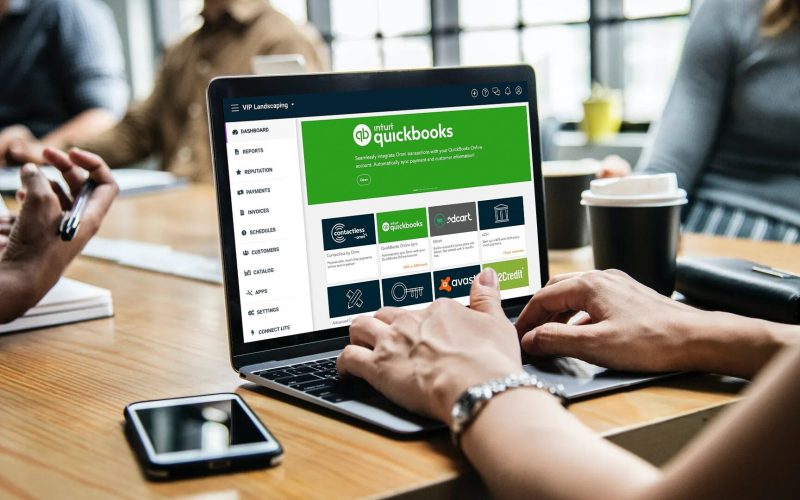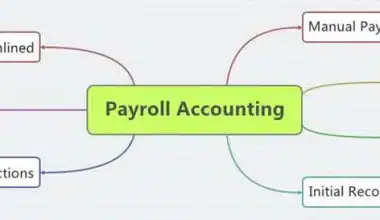The majority of small and medium-sized businesses use QuickBook accounting software to simplify their financial records. QuickBook, the industry-standard accounting software, helps accountants and businesses keep track of accounts receivable and payable, evaluate profitability, and plan for tax season. Also, QuickBook accounting software helps you organize your workday spending and handle invoice tracking on the go.
To further buttress the subject, this post will give a review of QuickBook software which will help accountants generate invoices and balance accounts. Also, on how to use the QuickBook accounting software
QuickBook Accountants
QuickBook is the finest all-around accounting software for small businesses and accountants according to reviews. The software is cloud-based and may be accessed by a web browser or mobile app.
Not only do the vast majority of accountants utilize QuickBook Online, but there is also an abundance of online training materials and forums where you can obtain help when you need it.
Furthermore, all accounting elements are easily accessible from a single primary interface, making accounting more fluid and efficient. As a result, it provides on-premises accounting software that handles your business accounts and a cloud-based version that accepts payments and manages payroll operations.
Some Existing QuickBook Online Packages That is Best for You
QuickBooks Online is available in four distinct packages, each with a different set of functionalities based on your company’s needs. What package your company requires is determined by the number of users necessary, the number of invoices and payments processed monthly, and the type of reports required.
Nevertheless, all packages track income and expenses, collect and organize receipts, maximize tax deductions, invoice and accept payments.
Read Also: Best 15 Free Accounting Software for Business Owners
#1. Simple Start
QuickBooks Online Simple Start, as the name implies, is ideal for small businesses that are just starting. Simple Start is the most basic online package of QuickBooks accessible, except for the Self-Employed edition (for Freelancers). The software will be capable of handling the basic accounting functions that users have come to expect from the brand.
#2. Essentials
QuickBooks Online Essentials allows you to track bill status, record payments and set up regular payments directly from the app. You may also pay several suppliers and invoices at once, as well as create checks from anywhere and print them when you’re ready.
Essentials Package, with its automated billing features, aids in the management of a developing small business. It has all of the capabilities of Simple Start, plus the ability to organize and pay bills, track time, and grant access to up to three people.
#3. Plus
QuickBooks Online Plus contains all of the capabilities available in Essentials, as well as the ability to manage inventory and track project profitability. Consequently, the package is ideal for project-based organizations such as contractors, as well as businesses that struggle with stock management. QuickBooks Online Plus supports up to 5 users.
Furthermore, Plus manages labour costs, expenses through job costing, allowing you to assess project profitability through clear dashboards and reports. Even, inventory capabilities allow you to monitor product levels, item costs and receive warnings when inventory is running low so you can order more.
#4. Advanced
Advanced is the most capable of the QuickBook Online packages, with the most customization and capabilities of any accessible plan. Accounting software will continue to allow you to manage bills, track project time and costs, invoice clients, manage contracts and pay employees. Nevertheless, it is a larger and better QuickBooks for expanding businesses, with more features, users, and support than lower editions of QuickBook software.
This robust version of QuickBooks Online is designed to compete with QuickBooks Enterprise–the most advanced on-premise version QuickBooks offers. This is so because of the sole capability to access up to 25 users with user authorization settings.
How QuickBook Online Software Works
Following the 30-day free trial, the membership plans are as follows: Simple Start at $25 per month, Essentials at $40 per month, plus $70 per month, and Advanced at $150 per month. Typically, a substantial discount is granted for the first few months, and some accountants are even able to offer wholesale prices to small enterprises.
This software’s monthly membership may be updated as your business expands. Also, there are numerous customization choices with the mobile app, which can serve for payments, report checks, record an image of a receipt, and track business miles. QuickBook Payroll fully connects with QuickBook Online for businesses searching for a payroll solution.
Each plan includes more complex capabilities such as inventory management, time tracking, more users, and budgeting. For instance, Simple Start will suit the demands of the majority of service-based small enterprises. Essentials or Plus will provide additional inventory and customization possibilities for small enterprises that sell products. An Advanced subscription is a new option that provides comprehensive financial reporting provided by Fathom. Fathom is a high-end online financial report analysis tool that is utilized by many significant corporations throughout the world.
All options support interaction with third-party apps like Stripe and PayPal. QuickBooks app store categorizes all of its apps by function and provides useful samples of each product’s benefits.
QuickBook Accounting Benefits
This QuickBook accounting software is usually favoured by small and medium-sized businesses because it includes most of the features required by small and medium-sized businesses.
#1. Dashboard
A rudimentary dashboard provides a snapshot of your company’s financial situation. For example, charts for Invoices, expenses, bank accounts, profit and loss, and sales. On the left is a menu that allows you to traverse the most commonly used features. Also, at the upper right of the screen is a plus button and the gear button that allows you to access shortcuts and more complex capabilities.
Further, there are search transactions and a help button, as well as an AI chat button that permits in the settings. Finally, the option to “view all activity” at the bottom of the dashboard will take you to a full audit record and history of recent activity.
#2. Invoicing
QuickBook includes six invoice designs as well as numerous invoicing automation (you can also import an existing invoice template via Microsoft Word). This feature allows you to change the logo, font, colour scheme, header, footer, number of columns, and other elements. Also, you can send QuickBook invoice reminders to customers and set recurring bills if you have the Essentials, Plus, or Advanced subscription.
QuickBook invoice feature makes your business appear good by creating professional sales receipts and estimates that your business improves as a brand and reflects the business in the brand category.
As a result, QuickBook delivers an online invoice for one-click payments so consumers can pay easily with a debit card, credit card, or bank transfer. As a recent addition, Multi-lingual invoicing allows you to send invoices in six different languages: English, Spanish, Portuguese, Italian, Chinese and French.
#3. Contact Management
QuickBook Online accounts include a comprehensive contact management system. You can save a ton of information about your clients, for example, their payment method, opening balance, and default tax codes.
Additionally, each contact can have important files, such as contracts attached to them which allows to you send bulk emails. Even more, you can modify the name of your customers as a recent development. To illustrate, clients, customers, donors, guests, members, patients, or tenants.
#4. Expense tracking
Expense tracking allows you to enter individual expenses, manually import bank statements, or activate live bank feeds. Also, you can classify your spending, set up specific bank rules, and attach receipts to them. QuickBooks will match transactions automatically (but you still have to approve the matches manually)
QuickBook Online, unlike most accounting systems, does not use Yodlee for live bank feeds. It receives bonus points for using its bank connector instead, where Yodlee is known to breach some banks’ terms.
#5. Importing and exporting
When compared to most other apps, QuickBooks importing feature is refreshing and simple to use. Customers, vendors, charts of accounts, products, and services can all be imported, but Exporting is more restricted. Also, reports can be exported to Excel whereas all other data must be exported using Internet Explorer.
#6. Workflows
The Routines Beta feature in QuickBooks Online has been renamed Workflows. Workflows allow you to automate processes like sending reminders to your team or issuing automated invoicing. This functionality is only available to customers of the Advanced plan.
#7. Budgeting
Unlike the desktop version which only allows for one year’s worth of budgeting, QuickBook Online accounting allows for numerous budgets. That is budgets can be created monthly, quarterly, or yearly. You may also create a budget using data from a prior fiscal year and run several budgeting reports. This feature is, however, only accessible on the Plus and Advanced subscriptions.
#8. Chart of Accounts
Accounting QuickBook comes with a default chart of accounts that you may change to match your needs. Instead of having a built-in depreciation schedule for assets, you can manually track them using the chart of accounts feature.
#9. Bank Reconciliation:
This QuickBook accounting feature allows you to simply reconcile bank accounts and generate a reconciliation report.
#10. Money Management
QuickBook has features specifically to aid accountants in managing a company’s finances. They can enter the due dates and payment details for all recurring bills in one section of the program. Accountants can also generate invoices or print checks immediately from QuickBook when bills are due.
Furthermore, each transaction is documented for convenient access during future audits.
Users of QuickBook can also connect their bank accounts to the program. This QuickBook function not only provides accountants with the ease of viewing all financial records on a single screen, but it also eliminates the need for printed bank statements.
#11. Employee Time Tracking
QuickBooks Online’s Employee Time Tracking by Customer function allows you to grant time-entry access to an infinite number of employees, allowing them to record their time independently in the system. Further, this allows you to quickly track time so that you can bill and pay your staff appropriately.
Your employees or contractors will simply fill out their timesheets on any PC with an Internet connection. In addition, you can allocate each time activity to a project or client and choose whether or not to bill your customers for that time.
#12. Reporting
Accountants can use QuickBook software to generate invoices and a range of other financial reports. These include income and spending comparisons from year to year, as well as trends and forecasting records. Furthermore, each report can be exported into Microsoft Excel spreadsheet format and emailed.
How To Use QuickBook Software
After signing up for QuickBooks Online, you’ll be able to log in and access the primary dashboard page. If you’re switching from another accounting software to QuickBook, you can import your previous files into your new accounts. The primary dashboard will provide an overview of your QuickBook accounts, including cash flow, invoices, costs, sales, and other information.
Furthermore, you can connect your credit card accounts using the Banking tab on the left side of the dashboard so that QuickBooks automatically categorizes transactions for you. Subsequently, when reconciling your books, you’ll be able to review these transactions under the Banking menu
Following that, you may personalize invoices, enable automated sales tax monitoring (if necessary), and learn how to enter mobile receipts and bills. Using the gear icon in the upper right corner, you can update all of your company’s account settings. Lastly, you can invite your accountants to your QuickBooks Online accounts via the My Experts option; you can also look for an accountant if you don’t currently have one.
Is QuickBooks hard to learn?
For someone who is familiar with accounting principles and how the accounting software functions, learning to use QuickBooks is simple. However, for someone who lacks computer literacy or bookkeeping experience, it may be challenging. It relies on the end user, even though Intuit, the firm that created QuickBooks, portrays it as being ready to use.
Is QuickBooks better than Excel?
You can make sophisticated computations using Excel as its formulas are far more robust than those in QuickBooks. QuickBooks lacks the capacity to carry out complex activities like statistical analysis and pivot tables, making it difficult or impossible.
Can you get QuickBooks for free?
Through our Intuit Education Program, educators and students have free access to QuickBooks Online (IEP). Visit our website or send an email to education@intuit.com to submit an application and set up an account. After registering, you’ll receive a free license for QuickBooks Online Account.
Can I teach myself QuickBooks?
Additionally, you can get a crash course in payroll or bookkeeping. The self-paced online video training is an option if your schedule is hectic. You can watch the videos whenever you want after you receive them so that you can learn at your own speed.
Can I learn QuickBooks in one day?
You will learn skills that enable you to work more quickly and efficiently, regardless of your skill level or knowledge with QuickBooks. Our one-day overview course teaches students how to work with lists, charts of accounts, and bank accounts while also introducing them to the environment and the fundamentals of company setup.
Why does everyone use QuickBooks?
Due to its extensive capacity for managing income and expenses, invoicing and payments, tax deductions, and more for businesses of all sizes—including self-employed individuals—QuickBooks is one of the most well-known and extensively used accounting software systems on the market.
Related Articles
- GENERAL LEDGER: Easy Templates, Examples And all you need (+ Free pdfs)
- General Ledger Accounting: All You Need To Know( +Quick Tools)
- How To Enter A Bounced Check In QuickBooks- Expert Guide
- QuickBooks Accountant: Basic Guide for Optimal Results (+ Quick Tools)
- Bookkeeping and Accounting: Best 2023 Practices & Differences
FAQ’s On QuickBooks
Is QuickBook Difficult to Learn?
QuickBooks can be a bit of a learning curve for those who are new to the software and the accounting industry. However, to those that are familiar with accounting concepts and similar software, QuickBooks is rather simple to learn.
Is QuickBooks Book-keeping Free?
QuickBooks mission has always been to support small businesses and accounting professionals around the world. To that end, you’re empowered to work with your clients for free. So, the overall cost is minimized and when you take on new QuickBooks Online clients, they take on new business
Can I Learn QuickBooks on my Own?
Once you get the videos, they remain yours forever so that you can learn at your own pace. Also, If you prefer a classroom learning experience, you can opt for live lessons at a venue near you. Check the Intuit site for training costs.
How Long Does it Take To Become QuickBooks Certified?
You do not need to be a bookkeeper or an accountant or have any specific education certificates or degrees. However, by investing just one or two hours a day, you can become a certified QuickBooks ProAdvisor in as little as two weeks
How Do I Become Bookkeeper in QuickBooks?
To become a certified bookkeeper, you must have a minimum bookkeeping experience of two years and also pass an exam. Notwithstanding, you need to keep meeting the educational requirements every three years in order to maintain the Certification






